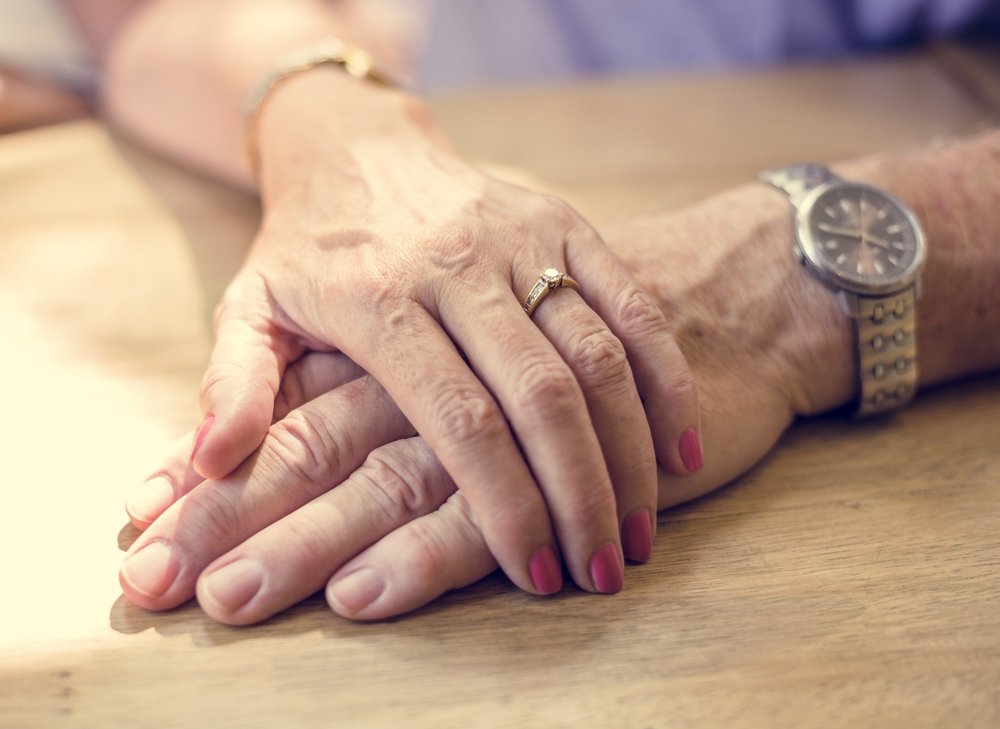Paying Caregiver’s Dues: Giving as Good as I Get
Written by |


The plastic mustard bottle hurtles toward the kitchen floor. Like a statue I stand, mouth agape, as it somersaults in slow-motion through space. Only seconds before, I’d removed the top of the bottle to scrape one final dollop from it onto the sandwich that my wife and I will share for lunch. Our two cats skulk in front of empty bowls, screaming their demands to be fed. Right. Now.
A few days earlier, my wife broke her ankle playing tennis, an injury that will keep her off her feet for several months. In the seconds it took for her to awkwardly step on that stray tennis ball, I became responsible for every process and function in our home, a mantle of responsibility for which I am barely prepared. The bottle dances off the floor, spinning and spewing golden mustard in a Jackson Pollock-like spatter across the floor. Apparently, there was far more than a dollop left in the bottle, and it leaves behind a mess worthy of a gruesome crime scene.
The cats continue to scream while I study the debris pattern on the floor for clues.
And then I find them. First, I was trying to do too much at once, normally a sure sign that I didn’t really understand my priorities and was simply trying to muscle my way through the many tasks at hand. To make matters worse, my dominant right hand has become MS-weak; trying to do too much with my clumsier left hand was a perfect storm for the mustardy mess.
In the quiet of the early mornings before the house wakes up, I begin to understand that the myriad routines we depend upon in life are made up of multiple processes. It will be up to me to establish new ones that account for my wife’s short-term disability and my long-term MS-related challenges. But because it was an accident, there’s no time for a learning curve, only a frontline defense against crying cats and spinning condiment containers and an energetic spouse suddenly forced into inactivity.
Two weeks into it, I begin to realize better how hard being a full-time caregiver is. I have lost six pounds without trying, forgotten to take my medicine repeatedly, gone several days without bathing, and am exhausted every night. Two weeks. Fourteen days.
I look as always to Dr. Google for tips. Much of what I find is focused on long-term care, but general tips, including these and the associated links from Caregiver Action Network, seem useful:
- Seek support from other caregivers. You are not alone!
- Take care of your own health so that you can be strong enough to take care of your loved one.
- Accept offers of help and suggest specific things people can do to help you.
- Learn how to communicate effectively with doctors.
- Caregiving is hard work, so take respite breaks often.
- Watch out for signs of depression and don’t delay getting professional help when you need it.
- Be open to new technologies that can help you care for your loved one.
- Organize medical information so it’s up to date and easy to find.
- Make sure legal documents are in order.
- Give yourself credit for doing the best you can in one of the toughest jobs there is!
For her sake, I wish my wife hadn’t gotten hurt. I hate seeing her in pain. It’s summertime and healing her broken ankle demands that she not put any weight on it or do anything remotely active — sort of an insult on top of the injury. She has readily shouldered more responsibility as my MS has progressed and reduced my ability to help around the house, and I am committed to doing whatever it takes to care for her.
In a meaningful way, our role reversal, from caring for and being cared for, has helped us both slow down and hopefully come out of this with sharpened priorities and a better sense of taking care of one another as life demands. I don’t currently need constant care, and perhaps never will. But at least if I do, we’ll share this experience and know how better to meet some of the challenges a bit more readily, always keeping in mind how hard care-taking can be, and what we can do as recipients of that care to make it easier for the other.
But before we can do any of that, one of us needs to feed the cats. Right. Now!
***
Note: Multiple Sclerosis News Today is strictly a news and information website about the disease. It does not provide medical advice, diagnosis, or treatment. This content is not intended to be a substitute for professional medical advice, diagnosis, or treatment. Always seek the advice of your physician or other qualified health provider with any questions you may have regarding a medical condition. Never disregard professional medical advice or delay in seeking it because of something you have read on this website. The opinions expressed in this column are not those of Multiple Sclerosis News Today or its parent company, Bionews Services, and are intended to spark discussion about issues pertaining to multiple sclerosis.



Leave a comment
Fill in the required fields to post. Your email address will not be published.